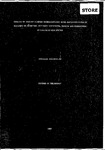Effects of dietary mannan oligosaccharide (MOS) supplementation in relation to intestinal integrity, microbiota, health and production of cultured fish species
| dc.contributor.supervisor | Davies, Simon | |
| dc.contributor.author | Dimitroglou, Arkadios | |
| dc.contributor.other | School of Biological and Marine Sciences | en_US |
| dc.date.accessioned | 2010-11-17T09:00:10Z | |
| dc.date.available | 2010-11-17T09:00:10Z | |
| dc.date.issued | 2010-11 | |
| dc.date.issued | 2010-11 | |
| dc.identifier | 240570 | en_US |
| dc.identifier.uri | http://hdl.handle.net/10026.1/296 | |
| dc.description.abstract |
A series of investigations were conducted in order to evaluate the effect of MOS supplementation in finfish aquaculture. Fish with great potential in aquaculture industry were tested with regards to effect of dietary MOS supplementation on intestinal histology and microbiology as well as overall animal health and production. Two levels of MOS supplementation were applied 0.2% and 0.4%. Experimental fish were Atlantic salmon (Salmon salar), rainbow trout (Oncorhynchys mykiss), sole (Solea senegalensis) and gilthead sea bream (Sparus aurata). The results from the sea bream studies revealed that MOS supplementation may have a beneficial effect on growth performance of fish greater than 100 g. Additionally, there is a systemic improvement of the intestinal histology for all species investigated, especially when using 0.4% of MOS supplementation level. Both light and electron microscopy revealed increased intestinal surface and improved intestinal integrity of MOS fed fish. MOS alters the intestinal microbiota, in the case of gilthead sea bream modulation was evident even when fish were fed 0.2% dietary MOS for as little as 2 weeks. Blood immune parameters were also affected by the MOS inclusion and total leukocytes counts were increased and leukocytes relative abundance was also changed. MOS induced intestinal microbial modulation was more evident in fish are reared in outdoor conditions. Feed utilization and digestibility were improved with the addition of 0.4% MOS supplementation in the Atlantic salmon. The sole experiment revealed that MOS could reduce fish mortalities induced by pasteurelliosis. These investigations, suggest a potential role for application of MOS in aquaculture. Future research should be conducted in order to evaluate other parameters that MOS may influence and ascertain optimum dosage for each fish species and developmental stage. | en_US |
| dc.description.sponsorship | Alltech Inc. Biotechnology | en_US |
| dc.language.iso | en | en_US |
| dc.publisher | University of Plymouth | en_US |
| dc.subject | Prebiotic | en_US |
| dc.subject | Aquaculture | en_US |
| dc.subject | Microbiology | en_US |
| dc.subject | Electron microscopy | en_US |
| dc.subject | Functional feed additives | en_US |
| dc.subject | Fish | en_US |
| dc.title | Effects of dietary mannan oligosaccharide (MOS) supplementation in relation to intestinal integrity, microbiota, health and production of cultured fish species | en_US |
| dc.type | Thesis | en_US |
| dc.identifier.doi | http://dx.doi.org/10.24382/1352 |
Files in this item
This item appears in the following Collection(s)
-
01 Research Theses Main Collection
Research Theses Main


